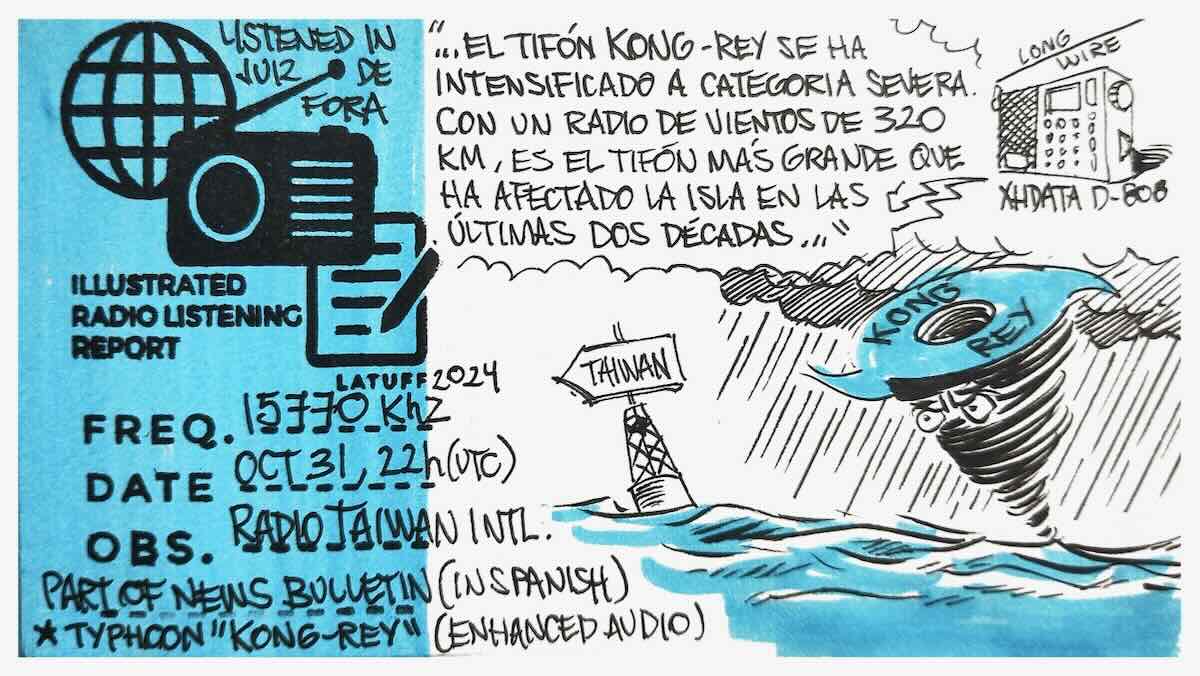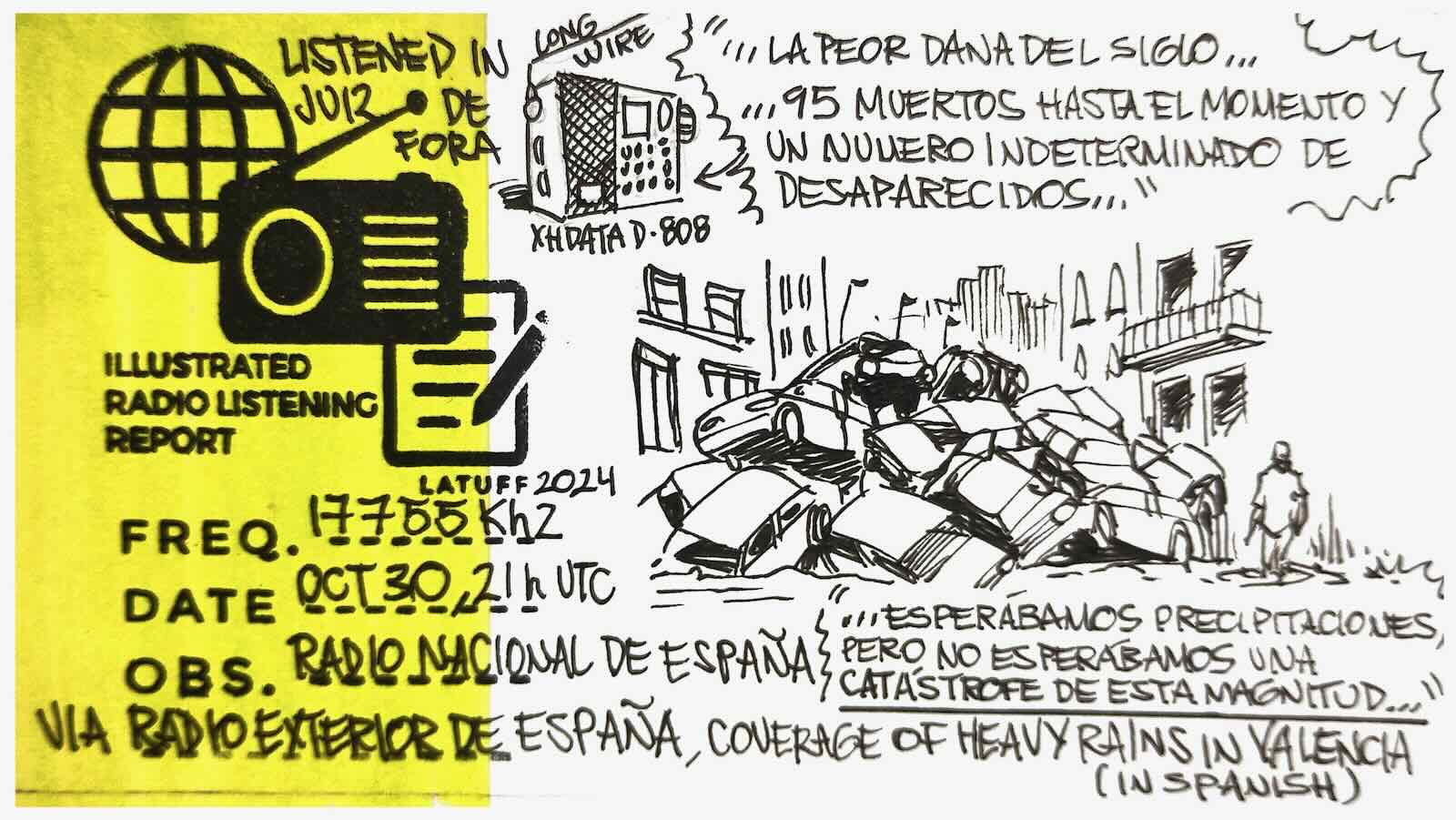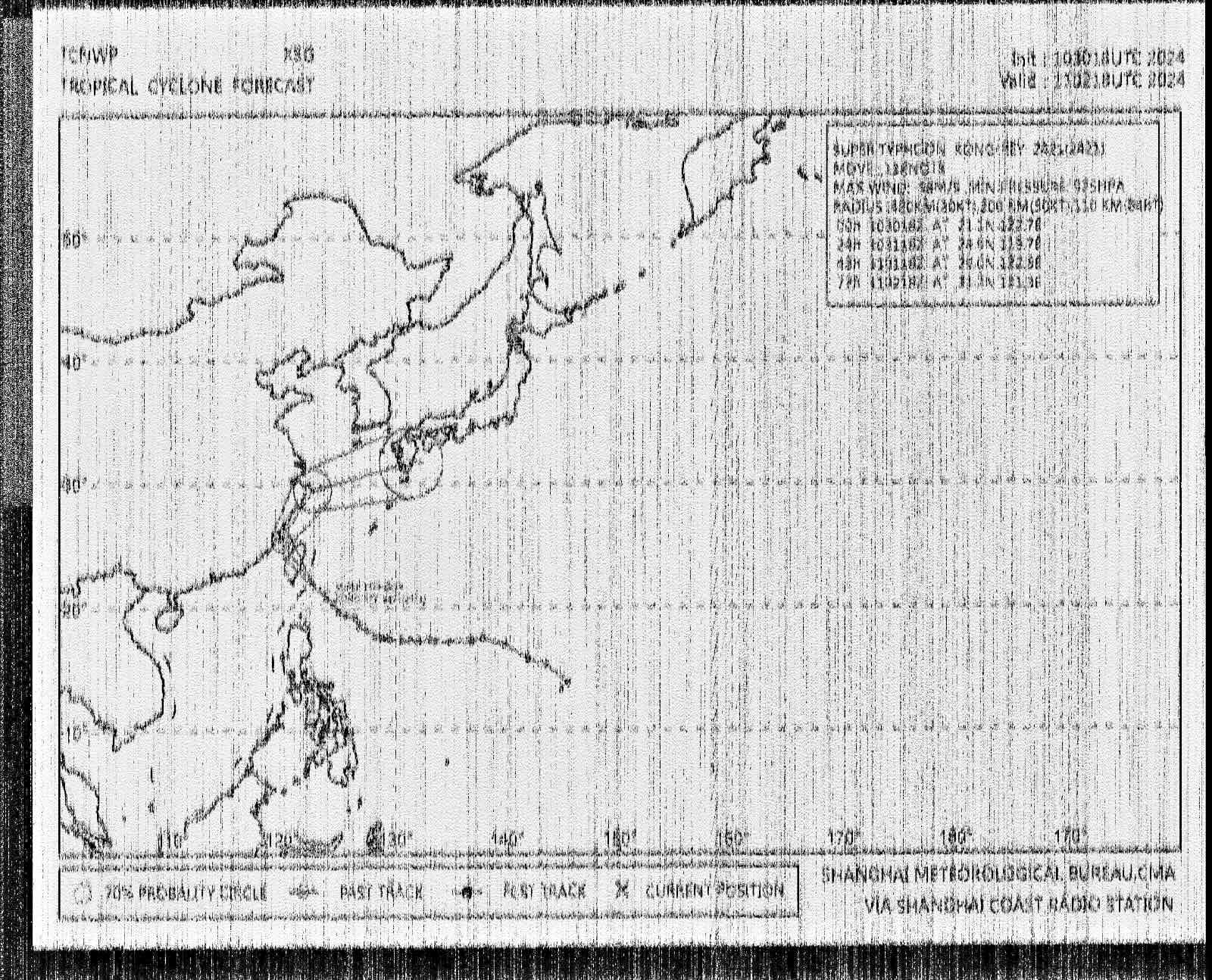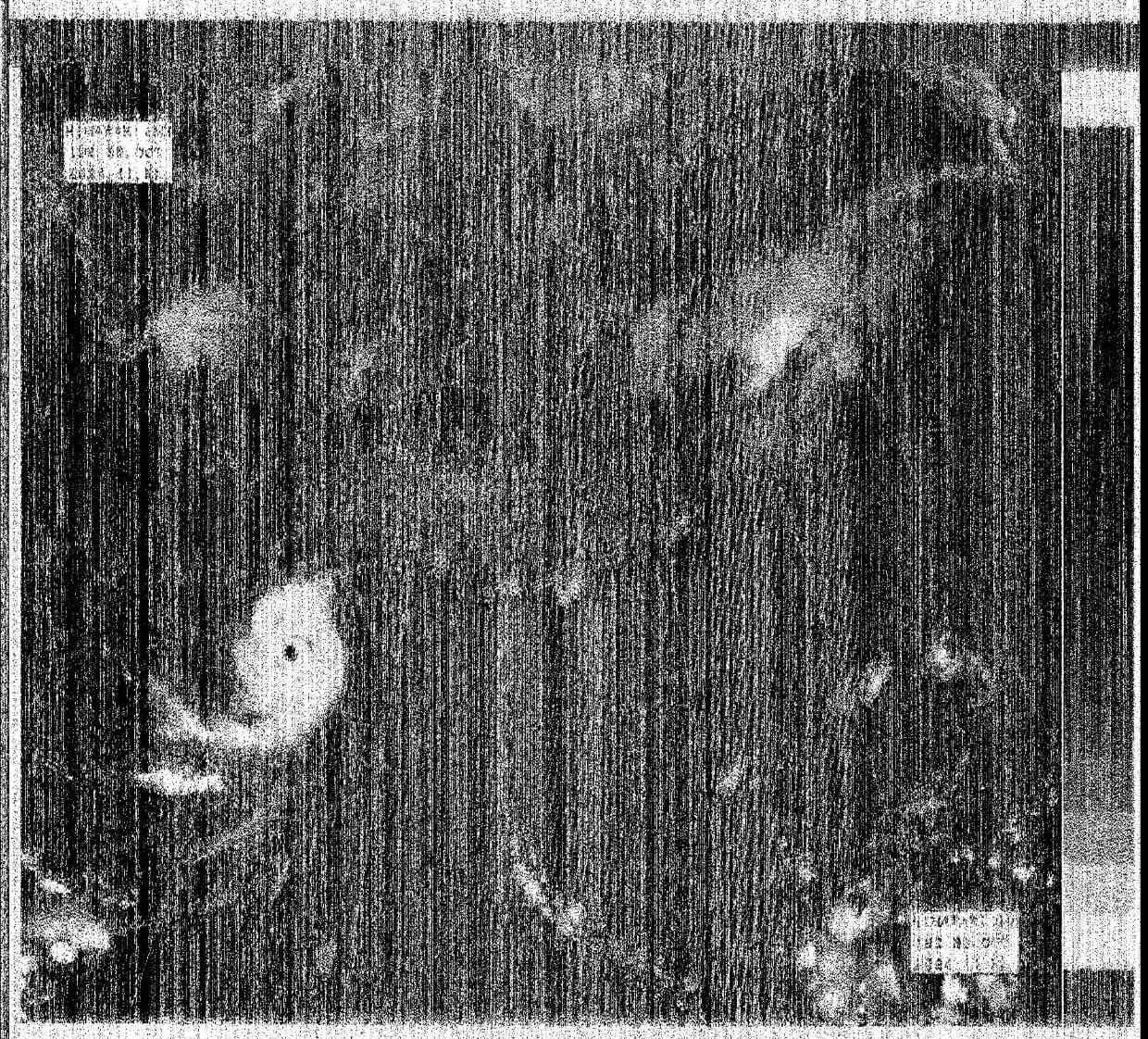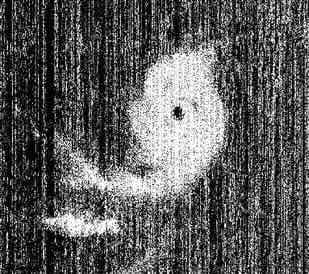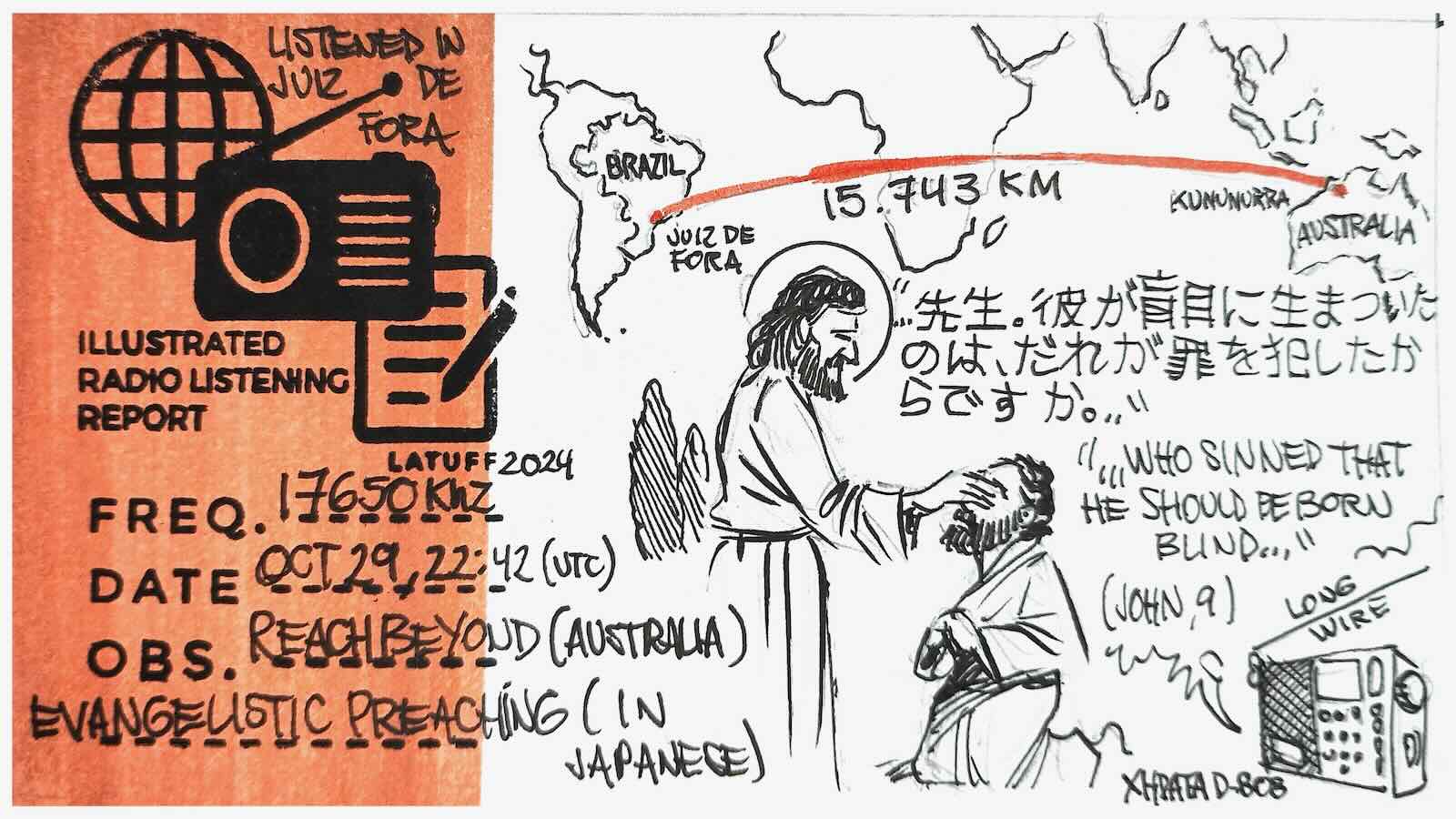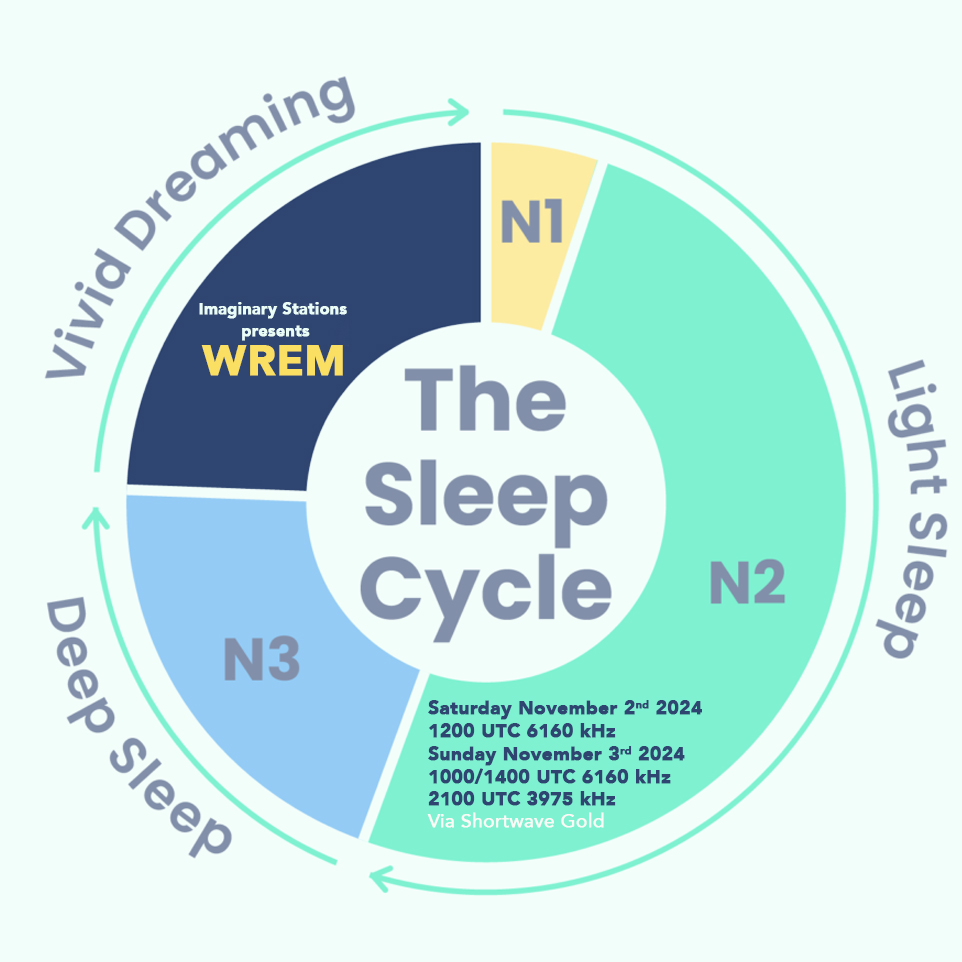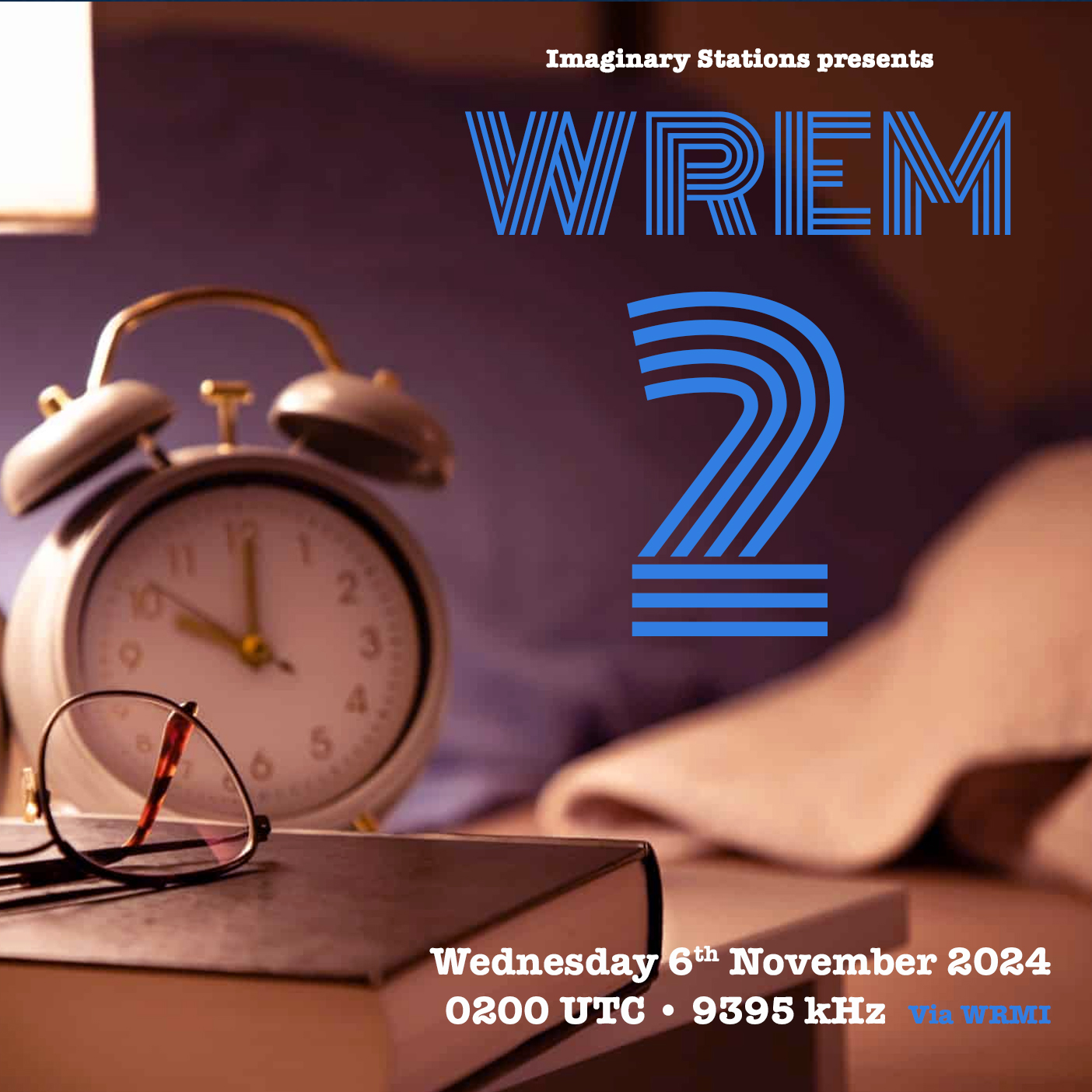Many thanks to SWLing Post contributor and noted political cartoonist, Carlos Latuff, who shares illustrated radio listening report of a recent Radio Exterior de España broadcast.
Carlos notes:
Part of Radio Nacional de España news coverage (in Spanish) of catastrophic rains in Valencia, Spain. Listened in Juiz de Fora, Brazil.


